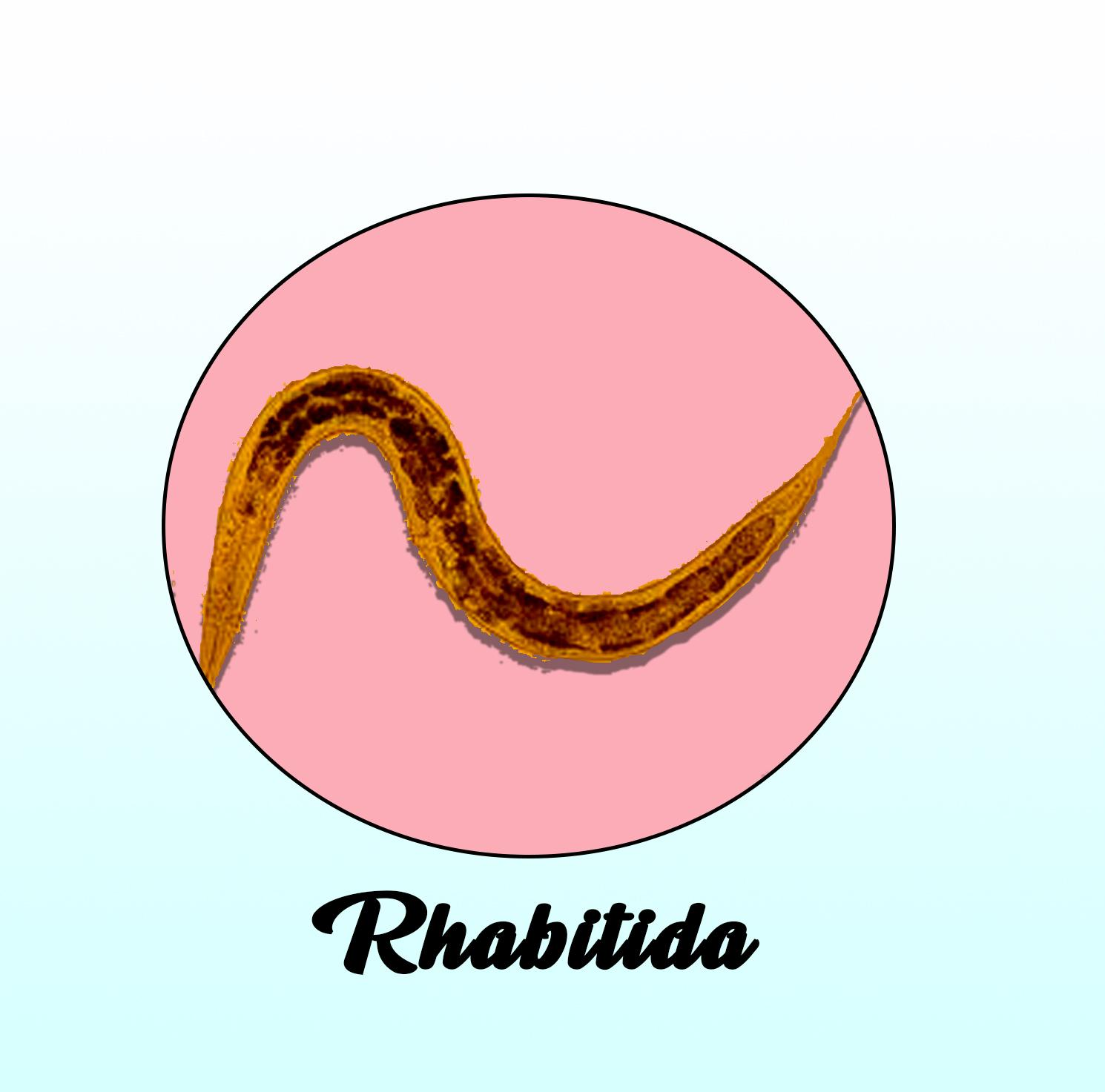Question
Question: A free-living roundworm that can cause serious autoinfection in human beings is _______. (a)Rhabdi...
A free-living roundworm that can cause serious autoinfection in human beings is _______.
(a)Rhabditis
(b)Spongyloids
(c)Loa
(d)Necator
Solution
The roundworm or nematodes can be free-living or parasitic and causes several different diseases in humans mainly intestinal diseases. They consist of the phylum Nematoda and spread through food and soil.
Complete answer:
Rhabditida or rhabditis, the order of threadworms that are free-living roundworms and are capable of causing autoinfection in human beings which are known as strongyloidiasis. The species of this order, mainly Strongyloides sterciralis or S. fuelleborni causes this infection in the human intestine.
Additional Information: Rhabditis- These nematodes cause strongyloidiasis which is a digestive infection in humans. The species of order rhabditida, Strongyloides sterciralis, causes this infective intestinal disorder that results in skin symptoms as well as abdominal pain, diarrhea, and weight loss. Rhabditida is free-living, zooparasitic, and phytoparasitic in nature that lives in soil.
Loa- Loa loa us another roundworm that causes the disease named loasis which inhibits the lymphatic and subcutaneous tissue of humans. These worms are commonly found in Africa in its rain forests. Loa loa is one of the neglected diseases as they are common in low-income population areas.
Necator- These are hookworms that live in the small intestine if human hosts and may cause hookworm infection. This infection causes symptoms like abdominal pain, diarrhea, weight loss, and tiredness. The necator worms mainly attach themselves to the villi of the small intestine where it sucks on the host's blood.
So, the correct answer is “Rhabditis”.
Note: There are several ways to prevent roundworm infection. The most important aspects of this are the consumption of clean food and water as well as sanitary hygiene. The roundworms often spread by pet animals like dogs and cats. Therefore, the periodic deworming of these pets is very important. Maintaining hygiene in eating and around us helps to prevent these infections.

